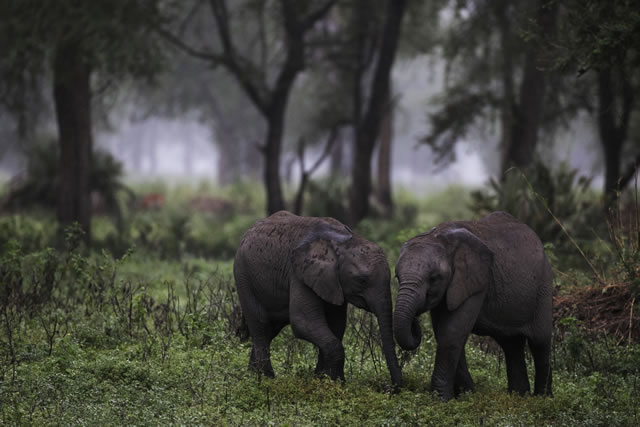Gorongosa National Park in Mozambique boasts a remarkably rich and charismatic community of animals, and a history to match. A PBS series “Gorongosa Park Rebirth of Paradise” premiering in the United States on Tuesday, September 22 (8pm Eastern/7pm Central) documents the ongoing efforts to restore this diverse ecosystem following decades of civil war.
The park was created in 1960 because the mix of savanna, floodplain, and woodland habitats in Gorongosa was home to one of the greatest densities of large mammals in the country, including lions, hippos, elephants, and zebras. Nearly three decades of conflict followed, the country fighting first for independence, then for stability, and animal populations plummeted. In recent years, conservationists, researchers, and locals have teamed up to “re-wild” Gorongosa, boosting populations and gene pools of large mammals, attempting to document and understand the complex ecosystem dynamics, and fighting to protect this special place from poachers.
The documentary prominently features the work of JRS Biodiversity Foundation grantee, ElephantVoices. Co-Founders Dr. Joyce Poole and Petter Granli study the effects that civil unrest and poaching have had on the behavior of elephants, which, as a long-lived species with a complex social structure, are particularly vulnerable to this type of trauma. JRS funded the organization’s ongoing development of an elephant tracking system driven by local volunteers. The project has generated not only crucial data on the status and movement of elephant populations in the park, but also a cadre of locals dedicated to the protection of the elephants.
Visit the PBS Series site here, and explore additional interactive timelines and maps of Gorongosa Park history and geography. The series will be available for preview online starting September 16.

